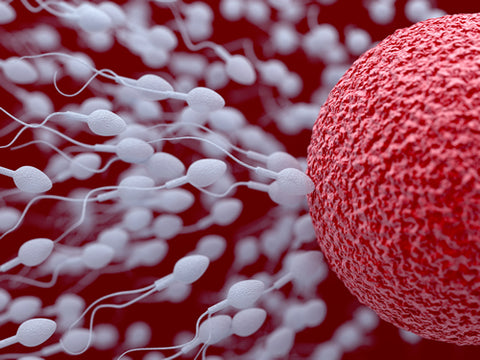The Effects of Mobile Phones on Sperm Count
The research regarding the effects of mobile phones on a variety of sperm conditions is overwhelming. For any couple having difficulty conceiving, exposure of the male reproductive tract to mobile phone radiation may be one of the factors that decreases the chances of success. Approximately 15% of the population faces infertility issues, and between 40-50% of those issues are caused by male infertility factors. So, while there are a variety of physiological components that may be the culprit, there are a limited number of male behaviors that can help minimize the risks. Reduction of exposure to mobile phone radiation is one of the steps men can take to increase the potential for fertilization.
In addition to compromising sperm viability and the way it moves, mobile radiation exposure has been associated with a decrease in sperm count in some studies. Sperm count is not as strong a variable as some of the other sperm parameters observed in research for two reasons. First, there is an ethical conflict that prevents direct experimental manipulation of human testicular exposure to mobile phone radiation, so the majority of research involves animal studies. Typically, rats or rabbits are the subjects of these studies, and the physiology of these animals is not a directly scaled model of the human reproductive tract. Rats, for example, are able to retract their testes into their abdominal cavity for protection.

Another aspect of sperm count studies that makes them less hearty than other sperm parameter studies is that sperm count is static in a sample. Once a sample is taken, it cannot be divided and compared in a before and after exposure condition the way parameters like movement and viability can be.
Regardless, the implications of animal studies conducted by Kesari, et al suggest that mobile phone use reduces sperm count in rats. Studies by Agarwal, et al, Makker, et al, and Deepinder, et al support that finding in human male observational studies. In a research analysis by Agarwal, et al, he presents a summary of a Hungarian study conducted by Fejes, et al in which sperm counts of mobile phone users were decreased by as much at 30% compared to men who were not mobile phone users.
The research on sperm count is controversial. There are as many studies that do not show statistically significant drops in sperm count as there are those that do show statistically significant drops. The question is therefore this: if half of men exposed to mobile phone radiation have a significant drop in their sperm count, and you and your partner are finding it difficult to conceive, don’t you want to decrease the risks and maximize your sperm count?
Learn about the effects of mobile phones on testosterone levels, sperm viability and sperm motility.
Sources:
